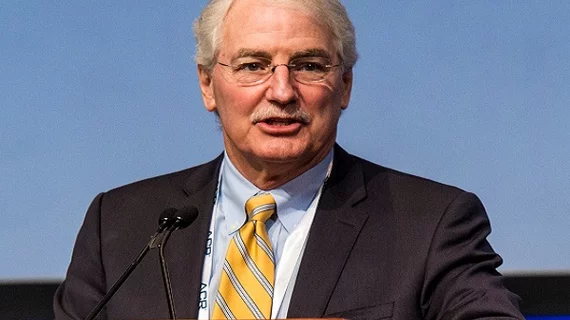American College of Radiology urges CMS to scale back ‘excessive’ cuts in mandatory payment model
The American College of Radiology is criticizing the federal government for failing to scale back “excessive” cuts in a forthcoming mandatory payment model, while also praising officials for pushing back the effort.
Congress first delayed the Radiation Oncology Advanced Payment Model back in December as part of a massive year-end spending bill. Previously slated to launch in July, the value-based care initiative will now kick off on Jan. 1, 2022.
College Chief Executive William Thorwarth Jr., MD, lauded the postponement in a recent letter, while also urging the Centers for Medicare & Medicaid Services to further modify the effort. Along with steep reimbursement reductions, he’s also “very concerned” about the mandated participants.
“The ACR is alarmed that such a significant number of small and rural practices are included in the model, while many large metropolitan areas have been spared, and are expected to use their limited resources to adopt and implement certified EHR technology, among all of the other reporting requirements for participation,” Thorwarth wrote to Acting CMS Administrator Liz Richter on Jan. 29.
The college wants the feds to reduce discount factors in the model to no more than 3%, to account for the significant financial challenges physicians are facing from the pandemic. It also wants the agency to conduct further rulemaking before implementing the project next year, and has previously pushed for other changes, including establishing a COVID case mix adjustment and allowing for more simplified monitoring requirements.
“The ACR is disappointed that none of the additional modifications the college recommended in light of the COVID-19 [public health emergency] were taken into consideration,” Thorwarth wrote, adding that he agrees with previous criticisms raised by the American Society for Radiation Oncology.

